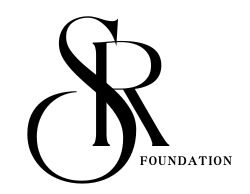Introduction
One of the most defining choices young professionals and students face today is: Should I take up a job or start something of my own? In India’s rapidly evolving economy, both employment and entrepreneurship offer exciting—but very different—paths. The key to making the right decision lies in understanding your strengths, motivations, risk appetite, and long-term goals.
This blog explores the pros and cons of both paths, includes case studies of real people, and provides tools and frameworks to help you decide what’s right for you.
What’s the Difference?
- Employment: Working in a structured organization, performing a defined role, receiving a monthly salary.
- Entrepreneurship: Building your own business by identifying a problem, creating a solution, and taking it to the market.
Both can lead to success and satisfaction, but the journey is vastly different.
Case Study 1: Ramesh – The Corporate Climber
Ramesh, an engineering graduate from Hyderabad, started his career with a multinational IT firm. Over 12 years, he grew from software engineer to VP. He enjoys stability, team leadership, and global exposure.
Why Employment Suited Him:
- Risk-averse personality
- Thrives in structured environments
- Prefers steady growth and income
Case Study 2: Neha – The Edtech Entrepreneur
Neha, a commerce graduate, always felt excited about teaching and tech. She started a YouTube channel, built a following, and eventually launched an online test prep app. After 3 years, she now leads a team of 30.
Why Entrepreneurship Suited Her:
- High risk tolerance
- Strong intrinsic motivation
- Creative thinker, self-driven
Employment: Pros and Cons
Pros:
- Steady income and financial security
- Clear career progression paths
- Structured learning and mentorship
- Benefits like insurance, PF, leave
Cons:
- Limited creative freedom
- Less control over work/life balance
- Job dependency and risk of layoffs
Entrepreneurship: Pros and Cons
Pros:
- Creative and operational freedom
- Potential for higher earnings
- Building your own legacy
- Solving real-world problems
Cons:
- High risk and uncertainty
- Financial instability in the early stages
- Longer work hours, more stress
- High responsibility (no boss—only you!)
Statistics to Consider
- Only 30% of Indian startups survive past 5 years (Startup India Report)
- India added over 1.5 crore new salaried employees in 2023 (CMIE Data)
- 72% of Gen Z in India are interested in starting their own business (Deloitte Gen Z Report)
Frameworks to Help You Decide
- Ikigai Model – Helps you find the intersection of what you love, what you’re good at, what the world needs, and what you can be paid for. Use this to assess both job roles and business ideas.
- DISC Personality Test – Measures behavioral tendencies. High-D types often become entrepreneurs; High-S and High-C types thrive in stable job environments.
- Holland Code (RIASEC) – Can predict your career comfort zone. ‘Enterprising’ individuals often lean towards business-building.
- Risk Appetite Test – Available on many career platforms. Helps assess your financial, emotional, and operational tolerance for risk.
Decision-Making Questions
Ask yourself:
- Do I prefer routine or uncertainty?
- Do I get more excited by building something or improving something?
- Am I okay with instability for the first few years?
- Do I need external structure or am I self-disciplined?
Hybrid Paths: The Best of Both Worlds?
Many individuals today start as employees, gain experience, and then transition to entrepreneurship. Some even do both together.
Case Study: Aarav’s Hybrid Journey
Aarav worked as a digital marketing manager while freelancing for small businesses. Two years later, he launched his own agency. Today, he employs 15 people.
Support Systems for Entrepreneurs in India
- Startup India: Government initiative with funding, mentorship, incubation support
- T-Hub, NASSCOM 10K, Atal Innovation Mission: Excellent platforms for young entrepreneurs
- Online Learning Platforms: Udemy, Coursera, Skillshare offer entrepreneurship courses
How SR Foundation Helps
- Career Personality Testing: To assess job fit vs founder fit
- One-on-one mentorship with both employees and entrepreneurs
- Entrepreneurial mindset workshops
- Access to startup pitch programs and innovation labs
Conclusion
There is no one-size-fits-all answer. What matters most is self-awareness and alignment with your deeper purpose. Whether you choose to work for someone else or build your own empire, success is defined by how fulfilled and impactful you feel.
Remember: A job can give you a living. A venture can give you a legacy.
Want to find out what suits you?
Book a free discovery session with SR Foundation. Let us help you choose the path that fits not just your skills—but your soul.
More powerful career articles coming soon at SR Foundation’s Blog Hub!




